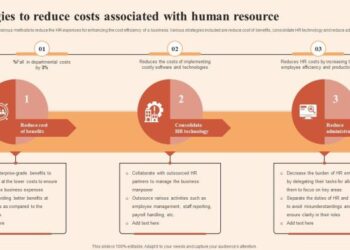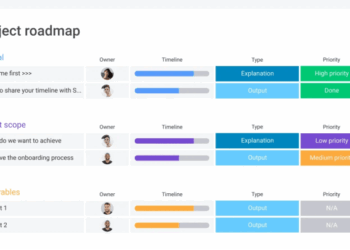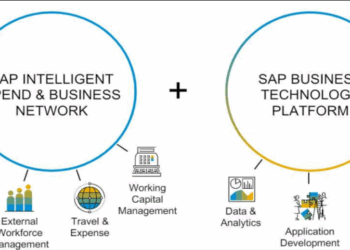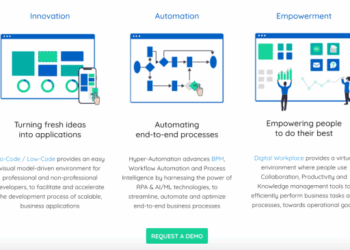Delve into the realm of machine learning certification where opportunities abound, and knowledge is the key to unlocking a future filled with possibilities. This captivating introduction sets the stage for a journey through the intricacies of machine learning certification, enticing readers with the promise of valuable insights and expert guidance.
In the following paragraphs, we will explore the significance of machine learning certification, the various types available, prerequisites for pursuing certification, costs involved, curriculum details, and the impact on job prospects.
Introduction to Machine Learning Certification
Machine learning certification has become increasingly important in the tech industry as companies rely more on data-driven decision-making processes. Professionals who are certified in machine learning demonstrate their expertise in this field, making them more competitive in the job market.
Benefits of Earning a Machine Learning Certification
- Validation of Skills: Obtaining a machine learning certification validates your skills and knowledge in this specialized area, making you a more attractive candidate to potential employers.
- Career Advancement: With a machine learning certification, you can open up new career opportunities and advance in your current role by demonstrating your expertise in this high-demand field.
- Salary Increase: Certified machine learning professionals often command higher salaries than their non-certified counterparts due to their specialized skills and knowledge.
- Professional Recognition: Earning a machine learning certification provides you with professional recognition and credibility within the industry, enhancing your reputation as a skilled practitioner.
Requirements for Obtaining a Machine Learning Certification
- Educational Background: Typically, to obtain a machine learning certification, candidates are required to have a solid foundation in mathematics, statistics, and computer science.
- Training and Experience: Candidates may need to complete specific training programs or gain practical experience in machine learning to qualify for certification.
- Examination: Most machine learning certifications require candidates to pass a rigorous examination that tests their knowledge and skills in the field.
- Continuing Education: Some certifications may have requirements for ongoing education and professional development to maintain certification status.
Types of Machine Learning Certifications
Machine learning certifications have become increasingly popular as the demand for skilled professionals in this field continues to rise. There are several reputable certification programs available, each offering a unique set of benefits and specialization areas.
Popular Certification Programs
- Google TensorFlow Developer Certificate: This certification program is designed for developers looking to demonstrate their proficiency in using TensorFlow, a popular machine learning library.
- Microsoft Certified: Azure AI Engineer Associate: This certification focuses on AI and machine learning solutions using Microsoft Azure technologies.
- IBM Data Science Professional Certificate: Offered by IBM, this program covers a range of topics including machine learning, data analysis, and data visualization.
Types of Machine Learning Certifications
- Foundational Certifications: These certifications provide a basic understanding of machine learning concepts and techniques.
- Specialization Certifications: These certifications focus on specific areas within machine learning, such as natural language processing, computer vision, or deep learning.
- Advanced Certifications: For professionals with more experience, advanced certifications delve into complex machine learning algorithms and advanced techniques.
Specialization Areas
- Natural Language Processing (NLP): Focuses on the interaction between computers and human language, enabling machines to understand, interpret, and generate human language.
- Computer Vision: Involves the development of algorithms to help computers gain high-level understanding from digital images or videos.
- Deep Learning: A subset of machine learning that uses neural networks to model and process complex patterns in data.
Prerequisites for Machine Learning Certification
To pursue a machine learning certification, individuals are expected to have a solid foundation in certain knowledge and skills. These prerequisites are essential for successfully completing the certification course and understanding the complex concepts of machine learning.Programming languages play a crucial role in machine learning certifications, as they are used to implement algorithms, analyze data, and build machine learning models.
Some of the commonly used programming languages in machine learning certification courses include:
Python
Known for its simplicity and readability, Python is widely used in the machine learning community due to its extensive libraries such as TensorFlow and scikit-learn.
R
Popular among statisticians and data miners, R is commonly used for statistical computing and graphics, making it a valuable tool for machine learning tasks.Prior experience in data science or related fields can greatly impact the pursuit of a machine learning certification.
Individuals with a background in data analysis, statistics, computer science, or programming may find it easier to grasp the concepts taught in the certification course. Their familiarity with data manipulation, visualization, and algorithmic thinking can give them an edge in understanding the intricacies of machine learning.
Relevant Skills and Knowledge
- Understanding of basic statistics and probability theory.
- Proficiency in at least one programming language like Python or R.
- Familiarity with data manipulation techniques and tools.
- Knowledge of linear algebra and calculus for understanding machine learning algorithms.
Cost and Duration of Machine Learning Certification
Obtaining a machine learning certification can vary in cost and duration depending on the program and institution offering it. Let's explore the typical expenses and time commitments associated with pursuing a machine learning certification.
Cost of Machine Learning Certification
Machine learning certification programs can range in cost from a few hundred dollars to several thousand dollars
. The price may depend on factors such as the reputation of the institution, the comprehensiveness of the curriculum, and whether the program includes any additional resources or support services.
It's essential to research and compare different options to find a program that fits your budget and offers the best value for your investment.
Duration of Machine Learning Certification Programs
The duration of machine learning certification programs can vary greatly. Some programs may be completed in a matter of weeks, while others could take several months to finish. The length of the program often depends on the depth of the curriculum, the pace at which the material is covered, and whether the program is part-time or full-time.
Consider your schedule and learning preferences when selecting a program with a duration that aligns with your goals.
Financial Aid and Scholarships
Many institutions offering machine learning certification programs provide financial aid options or scholarships to help students offset the cost of tuition. These financial assistance programs can make it more accessible for individuals to pursue certification and advance their skills in machine learning.
Be sure to inquire about any available opportunities for financial support when researching different certification programs.
Curriculum and Course Structure
Machine learning certification programs typically include a well-structured curriculum that covers a range of topics essential for understanding and applying machine learning techniques. Let's delve into the key aspects of the curriculum and course structure.
Key Topics Covered
- Introduction to Machine Learning: Basics of machine learning, types of algorithms, and applications in various industries.
- Statistical Methods: Probability theory, hypothesis testing, and regression analysis.
- Supervised Learning: Linear regression, logistic regression, support vector machines, and decision trees.
- Unsupervised Learning: Clustering, dimensionality reduction, and association rule mining.
- Deep Learning: Neural networks, convolutional neural networks, and recurrent neural networks.
- Natural Language Processing: Text analysis, sentiment analysis, and language modeling.
- Model Evaluation and Optimization: Cross-validation, hyperparameter tuning, and performance metrics.
Practical Projects and Assessments
Machine learning certification programs often include practical projects and assessments to allow students to apply their knowledge in real-world scenarios. These projects may involve tasks such as:
- Building predictive models based on datasets provided by the program.
- Optimizing machine learning algorithms to improve accuracy and performance.
- Implementing deep learning architectures for image recognition or natural language processing tasks.
- Presenting findings and insights from machine learning projects through reports or presentations.
Industry Recognition and Job Prospects
Machine learning certifications are highly recognized in the industry, with many employers valuing the specialized skills and knowledge that candidates with these certifications bring to the table. Having a machine learning certification can significantly impact job prospects and career advancement, as it demonstrates a commitment to continuous learning and staying updated with the latest technologies in the field.
Roles that Require or Prefer Machine Learning Certifications
- Data Scientist: Data scientists use machine learning algorithms to analyze complex data and make predictions. Having a machine learning certification can give candidates an edge in this competitive field.
- Machine Learning Engineer: Machine learning engineers design and implement machine learning systems. Certification can validate a candidate's expertise in this area.
- AI Specialist: Artificial intelligence specialists develop AI models and systems. A machine learning certification can showcase proficiency in this specialized field.
- Business Intelligence Analyst: Business intelligence analysts use machine learning to extract insights from data. Certification can demonstrate advanced analytical skills.
Last Word
As we conclude this discussion on machine learning certification, remember that the path to success in this dynamic field is paved with dedication and continuous learning. Embrace the opportunities that come with certification, and let your passion for machine learning drive you towards a rewarding and fulfilling career.
Detailed FAQs
What are the typical requirements for obtaining a machine learning certification?
Most certifications require a basic understanding of programming, statistics, and linear algebra, along with a passion for machine learning.
Are there any financial aid options available for machine learning certification programs?
Some programs offer scholarships or financial aid to help offset the costs of certification. It's advisable to check with individual programs for specific details.
How can prior experience in data science impact the pursuit of a machine learning certification?
Prior experience in data science can provide a solid foundation for pursuing a machine learning certification, as it familiarizes individuals with key concepts and tools used in machine learning.







